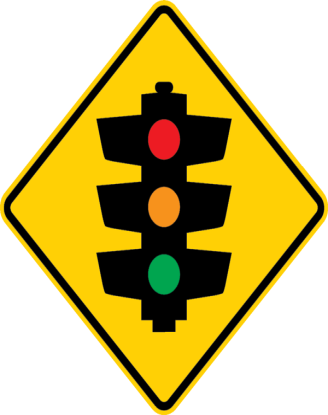Ensuring Rights and Responsibilities for People with Learning Disabilities
| ✅ Paper Type: Free Essay | ✅ Subject: Health And Social Care |
| ✅ Wordcount: 3514 words | ✅ Published: 23 Sep 2019 |
Ensuring rights and responsibilities for people with learning disabilities
Contents
- Title: ……………………………………………………………………………………..1
- Summary ……………………………………………………………………………….2
- Introduction…………………………………………………………………………….3
- Aim ……………………………………………………………………………………….4
- Situation………………………………………………………………………………….5
- One Page-Profile………………………………………………………………………..6
- Method……………………………………………………………………………………7
- Person Centred Plan……………………………………………………………………8
- Roles of the nurse………………………………………………………………………9
- Conclusion………………………………………………………………………………10
- Recommendations…………………………………………………………………….11
- References………………………………………………………………………………12
- Appendices……………………………………………………………………………..13
Summary
This one page profile will look at person centred planning care. The report will demonstrate the importance of using one page-profile which is used by service users with learning disability mainly when they visit healthcare services for example General Practitioners (GP), hospitals or walk-in centres. As stated by Sanderson, (2013) one-page profile is a one-page easy read in a simple summary to what is important to an individual and how the individual would want to be supported and how they communicate and make decisions.
However, service user’s personal information and such data and may be gathered exactly for the profile or hidden in other documents, such as a care plan (Sanderson, 2013). Nursing Midwifery Council (NMC, 2015) stated that people who receive care are to be treated as individuals and with respect.
However, there is considerable evidence that people with learning disabilities have poorer access to mainstream healthcare services than the general population (Disability Rights Commission 2006, Department of Health (DoH,2008), Parliamentary and Health Services Ombudsman 2009, Hanna et al 2011). In addition, individuals with learning disabilities who access services are likely to receive poor standards of care (Gibbs et al 2008, DH 2008, Parliamentary and Health Services Ombudsman 2009, Mencap 2012). Thus, Mencap, (2004) emphasised poor quality of care for individuals with learning disabilities received in primary and secondary care. Death by Indifference argued that it focused on medical and health decisions based on expectations about the individuals with learning disabilities and their apparent quality of life.
Introduction
This report will analyse the important of person centred care planning and explore the process of person centred care. The report will cover legal, ethical and professional vales that surrounds person centred care and policies that underpin the whole process of person-centred care.
In addition, the relationship between healthcare professionals’ and service users is vital because they create therapeutic atmosphere, especially when the team is effective (McCance, McCormack & Dewing, 2010). However, multidisciplinary teams are there on assisting and caring for individuals while collaborating (DH, 2012).
However, in learning disabilities there are barriers which most people do come across in delivering person centred care. According to (DoH, 2012) learning disability can be defined as a significantly reduced ability to understand new or complex information, to learn new skills impaired intelligence with a reduced ability to cope independently and before adulthood, with a lasting effect on development.
Moreover, individuals with learning disabilities have long been side-lined and excluded from society not only regarding social issues but ultimately on choices about their own lives. Thus, the Human Rights Act (1998) stated the basic significant rights of individuals with learning disabilities and this has strengthened them in society. The White paper has placed great emphasis on the wishes of individuals with learning disabilities to be treated equally. In line with the Valuing people which added on to this issue and sets out intentions to challenge these concerns and set key values.
Aim
This report will examine how person-centred care was planned and the involvement of the student nurse in placement practice. The one-page profile discussed will be hospital passport which Lee takes when attending healthcare services. However, pseudonym will be used throughout this report. This agrees with the confidentiality of the individual’s privacy (NMC, 2015). However, to safeguard the service users’ character and to maintain privacy for him, the service users is known as Lee.
Situation
Lee is 19 years old with moderate learning disability, epilepsy, autism spectrum disorder (ASD) which affects Lee social interactions, communicating difficulties and challenging behaviour. However, Lee’s epilepsy is managed through medications. Lee attends college weekdays and stays at home with his parents and he has other two siblings in the house and a carer that comes to support Lee. Although Lee is more known to the hospital, and other health services codes of conduct, codes of ethics and capability standards must always be monitored in a professional manner by the learning disability nurse and other healthcare professionals (NMC, code of ethics, 2008 and NMC, code of conduct, 2008).
In addition, Lee gets agitated when he does not get what he wants at the time of request and if there are any changes to his normal routine. Lee will starts throwing things, kicking carers and attacks peers even at college. Lee can communicate in short sentences, one-word answers but cannot understand big words, long sentences and when carers speak fast, Lee will miss what is being said and carers always repeat to check understanding. However, communication is the process of using words, sounds, or behaviours to express ideas, thoughts feelings, or exchange information (Merriam-Webster, 2014). Thus, effective communication is essential to ensure high quality of care is an essential skill for nurses and healthcare professionals (Balandin & Hemsley,2008). However, communication difficulties are characteristic of individuals with learning disabilities and carers involved in Lee’s care should use different communication skills in order to support Lee. Thus, when student nurse was collecting information for hospital passport, both verbal and non-verbal skills were used to check understanding when questions were presented to Lee. When student nurse was carrying out the assessment for Lee, student nurse had to speak slowly using short sentences to make sure that Lee understood. Thus, (RCN, 2017) stated person centred care is about focusing care on the needs of the service users. It went on to say nurses are bound by ethical codes of conduct. In addition, these standards of performance are there to ensure nurses practice is fair, non-judgemental, respectful and non-prejudicial.
Hospital Passport |
This is my
Health Care Passport
For people with learning disabilities using health services
My name is Lee James
If I must go to hospital this book needs to go with me, it gives hospital staff important information about me. It needs to hang on the end of my bed and a copy should be put in my notes.
This passport belongs to me. Please return it when I am discharged. Please do inform the Learning Disability Nurse I am in hospital.
Nursing and medical staff please look at my passport before you do any interventions with me.
Things you must know about me


Things that are important to me
My likes and dislikes
Name: Lee JamesLike to be known as: Lee |
|
Date of Birth: 01.01.1989NHS Number:00 11 22 33 |
|
Address: 01 George AvenueTelephone number:00000000000 |
Next of Kin and relationship:telephone: |
|
Family contact person, carer or other support:Relationship e.g. Mum, Dad, Home Manager, Support Worker: |
|
My support needs and who gives me the most support: |
Allergies:Eggs,


Religion:
Religious/Spiritual needs:
Ethnicity:

GP name and address:
Telephone number:

Other services/professionals involved with me:

Other services/professionals involved with me:
Allergies:


Things that are important to me
How to communicate with me:
Speak very slowly
Avoid using big words
Short sentences
Short sentences
Speak very slowly
Avoid using big words
Short sentences
How I take medication:
One tablet each at a time
Please do not rush me as I like to take my time
Please allow me to have a glass of water before my medication


How you know I am in pain:
I usually point where the pain is
Use symbols and pictures to show where the pain is .

Moving around:
I can walk properly without being supported.
I don’t use any walking aids to support myself.


How I eat:
I can eat normal I don’t need any assistance
Please cut my food in small pieces
Seeing/Hearing:
I can see clearly I don’t use glasses
I hear properly without hearing aids


My likes and dislikes


Play on my Xbox
Watch t.v.
Colouring
Music
Watch movie
Walk in the park


One-page profile
One-page profile
One Page Profile is an overview to an individual, collecting data to support and prove understanding. Thus, it often exposes information that may not been gathered in more prescribed circumstances. Thus, it is a simple effective way of allowing a starting point of the service users. Hence, a one-page profile is the first stage of achieving a more comprehensive person-centred report of the individual (Sanderson, 2013). This hospital passport will be used as part of the report which is a simple summary of Lee’s personal details and what type of support Lee requires. This is a detailed summary of what is important to Lee and what healthcare professionals should be aware of when Lee attends hospital or visit healthcare services (See Appendix 1).
However, the current new Special Education Needs (SEN) Code of Practice (2014) refers to One Page Profiles and person-centred planning, as a part of personalisation plan already recognised in health and social care. Thus, a tool where the values of the Code of Practice are preserved. In (2016), the accessible information standard was brought in for health services to help people with disabilities to communicate their needs.
Method
Person centred planning provides helping the service user plan all aspects of their life. Thus, student nurse and healthcare professionals should always ensure that Lee remain the centre to the progress of the plan. In this case, Lee was involved in planning and allowing him to make positive choices. However, developing a one-page profile for Lee helped healthcare professionals and student nurse to know how to cooperate with Lee, and his thoughts where valued and respected throughout the planning process. Mental Capacity Act (2005) is based on person- centred principles and provides legal support to previous guidelines for good practice (Mencap, 2010). It gives responsibility to all healthcare professionals to follow person- centred guidance in addressing issues of choice and consent in healthcare with learning disability individuals.
Before the planning of Lee’s care verbal consent was required. However, Simpson (2011) states that consent is permission given by the service user for a process to be applied. While, Wilhite(2010) explains that informed consent is a process where service users are informed of the risk, welfares and alternative treatment empowering service users to play a vital part to make informed and independent decisions to proceed for the treatment.
Moreover, Mental Capacity Act, (2005) states that healthcare professionals must not assume that a person has no capacity based on their disabilities or mental health. Lee lacks capacity to make decisions for himself. The (MDT) acted upon Lee’s decisions in best interest. The student nurse explained to Lee his hospital passport will placed in a safe place at home and other copies will be in his files at college and in the nurse’s office.
Since,Lee has a learning disability and challenging behaviour it is difficult for him to access community services and difficult to express his concerns when in pain or distressed. Thus, Lee communication vocals are not clear except when he uses body language. The student nurse had to create therapeutic relationship with Lee using a range of different communication skills verbal and non-verbal to be able to deliver person centred care (Stein-Parbury, 2009). Communication is a process which enables people to relate with those around and make concerns and needs known. However, communication can be verbal and non- verbal. (Peate,2005) states that non- verbal communication strengthens a verbally communicated message. Thus, non-judgemental interactions are focused on therapeutic communication, which helps settle emotional conflicts and support individuals like Lee by allowing service users to feel safe and share their fears, values, hopes and ideas. However, the student builds a good therapeutic relationship with Lee by using effective communication skills, showing understanding of what is important to Lee and allowing enough time for Lee to process his feelings and thoughts. Lee listened attentively, and student nurse checked his understanding by repeating what has been said. Thus, poor listening skills without the individuals understanding can affect therapeutic relationship and often form a barrier to communication (Andrews & Smith, 2001).
Person centred planning
Thus, person centred care process focuses on continuous reviews, learning and listening. It focuses on the immediate and the future, taking into account the needs, thoughts, concerns and opinions of the individual and working together with health care professionals, families, friends, carers and others who are within their personal network (Department of Health, (DoH, 2012) Nursing and Midwifery Council (NMC,2015) and Royal College of Nursing, 2017). According to the Human Rights (1998) it states that everybody has the right to make their own choices including those with learning disabilities. However, person-centred planning is a process of continuous review, learning and listening. Thus, it focuses on the instant and the future, taking into account the needs, thoughts, concerns and opinions of the individual, and consulting their family and friends and others within their network.
However, Lee does not have capacity in the choices of food that he takes, and staffs always works with him to make sure he knows what eating healthy is and the types of fruits that he needs to eat more. Person-centred planning is an approach that include not just specialist learning disability services, but also services used by mainstream society. This in turn helps to connect them with mainstream society and fosters a greater move towards inclusion and realisation of life goals. (REF) However, Lee lacks insight knowledge of the effects of poor diet intake to his health and excessive sugars intake. However, student nurse and learning disability nurse worked together in advising Lee to stop adding sugar in his drinks and reduce the number of fizzy drinks that he takes on daily basis which is unhealthy. While, on placement student nurse worked with learning disability nurse to create easy read for Lee to make him understand the implications and health risks of having too much sugar in drinks. Thus, ensuring carers to record his food diary on daily basis and keep it in his file.
According to this issue, the nurse arranged a multidisciplinary (MDT) meeting for Lee’s care needs to be discussed. According, to the Care Act (2014) anything done to an individual should be on the person’s best interest. The (MDT) which was arranged involved dietician, speech and language (S.A.L.T), behavioural support team, learning disability nurse and epileptic specialist nurse were part of the meeting. Thus, this decision was made by the (MDT) conflicts with Lee autonomy and this worked against his wishes. This can be explained as a legal issue as this limited Lee human rights against his choice and this worked out in favour of ethical principle of beneficence and non-maleficence (Beauchamp and Chidress,2013).
According, to the Human Rights Act (1998) there are several specific rights that particularly relates to Lee who has moderate learning disability and issues he faces while in community. Article (14) of the Human Rights Act (1998) has a significance to those with learning disability. Along with the Disability Discrimination Act (1995) the right help to ensure that individuals with learning disabilities are not discriminated against because of their disability, aspects of life, job opportunities, the right to independent living and the right to services and support in the community.
However, Valuing People, White Paper emphasised the rights, independence, choice and inclusion of people with learning disability. Thus, these are all mirrored in the Social Model of Disability a framework for identifying the tasks facing community services. It focusses on the basis that they are all equal. However, individuals like Lee should be included in activities and other services such as early years services, education, employment, social and sports leisure which will enable them to lead a good and meaningful life. Thus, Lee needs to have a choice and control over the activities which he participates, facilitated through person centred care support plans. Hall (2014) has argued that reducing number of people experiencing exclusion from mainstream society is the unifying principle of social policy.
Role of a Learning Disability Nurse
Learning disability nurses provide support and advice to assist individuals and their families, and carers on issues around the individual’s health. (REF) According to (NMC,2015) learning disability nurses should show the six c’s towards service users competent, compassion, caring, courageous, committed and communicates with individuals using a variety of communication methods which are suitable to the individual needs. Learning disability nurses work together with other members of health and social care teams for example education and university posts, policy development and advisory roles (NMC,2015). Thus, they work closely with GPs, consultants, social workers and therapists to offer the best health care possible.
However, learning disability nurses have the duty of care to perform in the best interest of service users like Lee and others with learning disabilities and advocate them (NMC,2015). Nurses and other healthcare professionals are obligated to practice according to the code of conduct by considering ethical, legal and professional issues in all their practice to deliver a holistic person-centred care.
Moreover, community learning disability nurses have the knowledge and skills to make a difference to individuals with learning disability. Mencap Death by Indifference report highlighted the ignorance often faced by individuals with learning disability in health services (RCN,2007). The Royal College of Nursing (2007) feels strongly that values and contribution of learning disability nurses should not be underestimated in delivering quality nursing care to people with learning disability. However, recent reports by Disability Rights Commission and Mencap have emphasised the need to tackle health inequalities for individuals with learning disabilities. Learning disabilities nurses plays a vital role in working and reducing barriers to support individuals to pursue a fulfilling life (DH,2006). Thus, learning disability nurses play a dynamic role within the multidisciplinary teams (MDT) to deliver person centred processes. In other words, healthcare professionals and nurses provide holistic care; actively involve service users in informed decision making and respecting service users’ beliefs and values. Therefore, nurses are there to form service users experience by delivering high standard care (DoH, 2008). Moreover, to achieve a high-quality care all health care staff should be concerned while working with service users (McCormack & McCance, 2010). Nurses and healthcare professionals’ need be involved in patients care, creating therapeutic environment and overall patients’ satisfaction with care in expected outcomes of person-centred care (McCormack & McCance, 2010). Yet, codes are created as guidelines for nurses and healthcare professionals to assist in making sure individuals are at the centre of the care.
In conclusion, this one-page profile report has explored communication skills that were used during assessment of hospital passport for Lee. It is evident that communication is important in nursing care and assessments of individuals with learning disability are paramount in providing patient centred care. However, using different forms of communication to collect service user’s information is certainly a principle for the real caring. Thus, individuals with learning disabilities have the right to be treated equally, regardless of the disability as others should be entitled to a professional and effective service during their experience within the healthcare services.
Recommendations
First, Lee hospital passport had to be done and understood properly. Thus, everything that was done was in best interest of Lee. Student nurse had to use better communication methods than speech when communicating with Lee such as pictures and big simple text. In addition, Lee’s family where part of the assessment and his carers where included in his care to an extent which was comfortable for them. Student nurse had to support Lee family and suggested that they will be receiving ongoing trainings to help them understand and manage situations that Lee finds challenging. Thus, Lee would have access to community service for individuals with learning disabilities where he can get to meet other peers outside college. Hence, student nurse made sure that a range of occupational therapy models will be used to gather relevant information about Lee to help plan appropriate interventions.
References:
- Andrews, C., Smith, J. (2001). Medical nursing. London, United Kingdom: Harcourt publishers.
- Royal College of Nursing: Retrieved [Online] at https://rcni.com/hosted-content/rcn/first-steps/what-person-centred-care-means
- Ian Peate, (2005). Nursing Care and Activities of Living. 2nd ed. John Wiley & Son:
- Sanderson, H 2013, ‘Personalisation: three steps to transform practice’, Learning Disability Practice, vol. 16, no. 5, pp. 34–37, viewed 5 November 2018, https://search.ebscohost.com/login.aspx?direct=true&db=rzh&AN=104176647&site=ehost-live
- Howieson, J & Clarke, K 2013, ‘Ensuring service users can access crucial information’, Learning Disability Practice, vol. 16, no. 1, pp. 22–25, viewed 5 November 2018, https://search.ebscohost.com/login.aspx?direct=true&db=rzh&AN=104310772&site=ehost-live
- Department of Health (2008) Healthcare for All Report of the Independent Inquiry into Access to Healthcare for People with Learning Disabilities. DH, London.
- Hanna L, Taggart L, Cousins W (2011) Cancer prevention and health promotion for people with intellectual disabilities: an exploratory study of staff knowledge. Journal of Intellectual Disability Research pp55, 3, 281-291.
- Disability Rights Commission (2006) How to Use Easy Words and Pictures. Accessed 2nd of November 2018 [Online] https://tinyurl.com/8y7ar7g
- Mencap (2007) Death by Indifference. Mencap, London.
- McCormack, B. & McCance, T. (2010). Person-centred Nursing. Oxford: Wiley-Blackwell.
- Nursing and Midwifery Council. (2008). The Code: Standards of conduct, performance and ethics for nurses and midwives. London: Nursing and Midwifery Council.
- Royal College of Nursing. (2010). Principles of Nursing Practice: principles and measures consultation. London: Royal College of Nursing.
- Royal College of Nursing. (2014). Person-centred care. Retrieved November 18, 2014, Accessed 1st of November 2018 [Online] https://www.rcn.org.uk/development/practice/cpd_online_learning/dignity_in_health_care/person-centred_care
- Epilepsy Foundation Victoria (2011) https://www.epilepsy.org.au/about-epilepsy/understanding-epilepsy/what-epilepsy
- https://www.scie.org.uk/publications/elearning/person-centred-practice/resource/2_creating_profile_0_2.html
Cite This Work
To export a reference to this article please select a referencing stye below:
Related Services
View allDMCA / Removal Request
If you are the original writer of this essay and no longer wish to have your work published on UKEssays.com then please click the following link to email our support team:
Request essay removal


